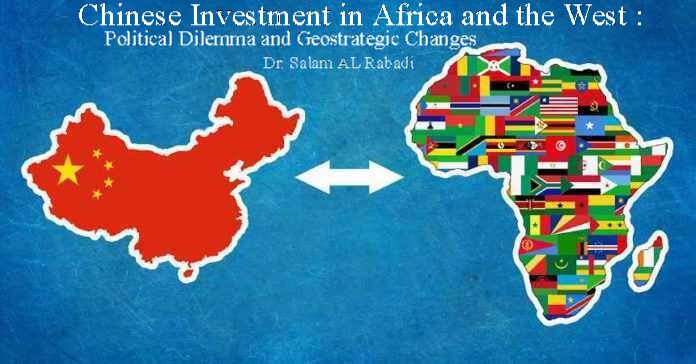Chinese Investment in Africa and the West. Political Dilemma and Geostrategic Changes
In
Log in if you are already registered
The expansion of Chinese transnational corporations influence globally does not deviate from the context of the strategic plans adopted by the Chinese state to secure its vital economic and political sphere. It is clear that the investment strategies of Chinese companies are based on making China a global economic, political and military power.

Therefore, it can be said that these investment policies inevitably reflect China’s vision of how to achieve long-term political and economic goals. On this basis, it seems that the influence of Chinese investments on the African continent represents a geostrategic change that will upset many global economic and political balances at all levels and in all areas.
Chinese investments have expanded their scope of work across the continent, and the volume of trade between China and Africa is increasing at a very high rate. Where during the summit of the Forum on China-Africa Cooperation (FOCAC) held in Beijing in September 2024, China pledged to implement about 30 infrastructure projects across the continent and provide financing and support worth about 51$ billion over the 3 years(2025-2028).
The trade volume between China and Africa currently amounts to approximately 167$ billion (in the first half of 2024), with Chinese exports estimated at 97$ billion, compared to African exports worth 69$ billion. At present, there are more than 10,000 Chinese companies operating across the continent and are active in all sectors (technology, infrastructure, mining, agriculture, rare metals, green energy, etc.) and the number of Chinese citizens in Africa is estimated at about two million people, and they are the largest foreign community inhabiting the continent.
Consequently, as a result of the growing influence of Chinese investments, it has become clear that there is a Sino-Western competition within Africa, as there are serious geopolitical questions and concerns in the West about the repercussions of these huge investments, which fall within China’s political vision of the state. We can infer this competition by following the West’s attempt to work to counter China’s initiative, called the “Belt and Road” or New Silk Road, especially in its African aspect.
Therefore, from the monitoring of this strategic conflict related to these investments, which is based on the principle of transcending traditional political and economic confrontations, it is no longer possible to ignore many of the problematic revolving around the West's attempt to involve issues related to sustainable development in this conflict, especially at the level of issues related to governance, transparency and the fight against corruption, environmental standards, human rights, etc.
This is through the West directing many accusations and harsh criticisms at Chinese investments for not adhering to and complying with sustainable development standards in Africa. Here the following logical questions can be asked:
- What are the dimensions and repercussions of Western accusations against China that its investments in Africa violate sustainable development and human rights standards?
- Are there now purely political trends in dealing with Chinese investments instead of trends based on how to help promote sustainable development policies in all their dimensions on the African continent?
Assuming that these investments do not fall outside the realm of competition between China and the West, we must draw attention to the problematic of the political dimension in Western criticism of Chinese investments in terms of their neglect of sustainable development standards on the African continent, especially in failed states.
This problematic becomes clearly visible when tracing the emphasis on the adoption of strict environmental standards and commitment to sustainable governance that Western countries are trying to impose on many countries that have investment relationships with China. This is with the aim of trying to limit China's economic and investment capacity and power.
For example, sustainable development policies that focus on reducing emissions and transitioning to clean energy are being leveraged to limit the expansion of heavy industries in China and developing countries that rely on them for rapid economic growth. While developed countries continue to monopolize advanced clean energy technologies, enhancing their economic and technological control.
In sum, it seems clear that there is a political and economic exploitation of the concepts of sustainable development as a tool by which to curb the expansion of Chinese influence on the African continent. Unfortunately, developed countries have often used it as a means of pressure to promote their interests and undermine the rapid growth of developing and emerging countries, thereby contributing to slowing the pace of their economic and political rise.
In light of the above, we should not ignore the strategies of some countries based on using the concepts of governance and transparency to achieve political objectives. This opens the door wide and seriously to raise a dialectic:
How does the West exploit all the concepts of sustainable development at the economic and political level to confront the influence of Chinese global investment, specifically on the African continent?




